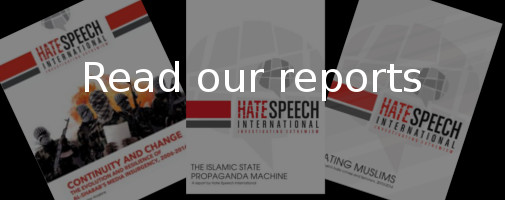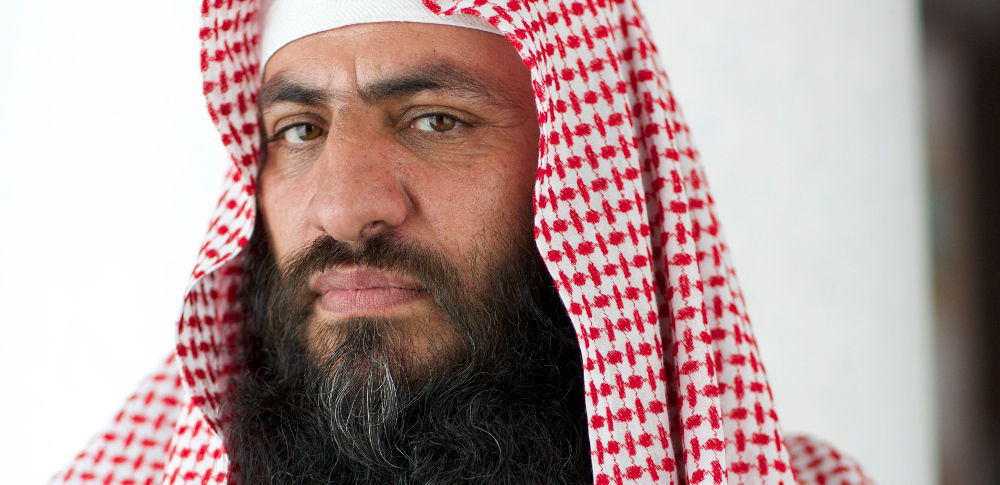ANALYSIS: Our interview with Jordanian militant Islamist Abu Sayyaf provides insight into the revolutionary mindset of Salafi jihadism.
Øyvind Strømmen
At least 500 Jordanians are thought to be involved in Syria’s raging civil war. Jordanians hold prominent positions in both Jabhat al-Nusra and ISIS, the two main jihadist factions fighting in Syria. And plenty of fundamentalist Sunni jihadists inside Jordan are poised to make the trip across their country’s northern border.
All this gives Jordanian intelligence services a double reason to worry: If stability is restored in Syria, hundreds of militants may return to Jordan and pose an internal threat. If Syria’s turmoil continues, a de facto Islamist mini-state could emerge in southern Syria, giving Jordan a Taliban-like regime on its doorstep.
Even now, Salafi jihadism is drawing new support inside Jordan. In an interview with HSI, the Salafist Jordanian militant Abu Sayyaf declares support for al-Qaeda and claims that belief in jihadist ideals is growing.
While Abu Sayyaf is reputed to be more about talk than action, the interview tells us much about the Salafi jihadist mindset. Consider, for instance, his open disdain for the Muslim Brotherhood, the religiously oriented political movement that – in the West – is itself widely and perhaps justifiably seen as an Islamist threat. For Abu Sayyaf, the Brotherhood is sinful, because running for elections and taking part in parliamentary rule violate his rigid interpretation of sharia, or Islamic law. He even says that if he were Egyptian he would reject rule by the Muslim Brotherhood. It should be fought, he says, like “any secular regime”.
Abu Sayyaf uses even harsher words to describe Egypt’s Field Marshal Abdul Fattah al-Sisi, a key figure in the ouster of the Brotherhood’s Mohamad Morsi from presidential power last summer. But Sayyaf’s attack on the Brotherhood brings into sharp relief the difference between the Brotherhood’s focus on islah – or reform – and the jihadist focus on jihad. Notably, Abu Sayyaf emphasizes jihad in the sense of holy war as an individual duty, or fard al-‘ayn, for every Muslim. This places him in a tradition going back to Muhammad abd-al Salam Faraj, an electrician turned Islamist ideologist who was executed in 1982 for his role in the assassination of president Anwar Sadat the previous year.
In the late 1970s, Faraj wrote a small book called The Neglected Obligation. The text, originally a manifesto of sorts for the group al-Jihad, remains important to understanding Salafi jihadist ideology. It calls for the establishment of an Islamic state based on sharia law – a state that can be the “territorial nucleus” from which to re-establish a Caliphate that one day will conquer “all corners of the earth”. The text furthermore states that fighting for such a state is an individual duty for each and every Muslim, and defines as unbelievers not only only non-Muslims but Muslims who do not adhere to a strict interpretation of Islamic law. Like Abu Sayyaf, Faraj refers the early Medieval Islamic scholar Ibn Taymiyya. His text underscores the need to rebel against internal enemies and brands the elite in Egypt as apostates much as Abu Sayyaf today refers to Sisi as an apostate. In short, The Neglected Obligation puts forth a revolutionary doctrine. Ayman al-Zawahiri, a leading figure in al-Qaeda, was a member of al-Jihad. In his book Knights Under the Prophet’s Banner, Zawahiri claims to have known Faraj personally.
An important question raised by the fall of Morsi in Egypt has been whether it could lead to a radicalization of former Muslim Brotherhood members. Undoubtably, a number of Salafi jihadist thinkers have welcomed the development. As William McCants points out in an article in Foreign Policy, “no Salafi is likely more pleased with the turn of events in Egypt than Ayman al-Zawahiri […]. For decades, Zawahiri has argued that the Muslim Brotherhood’s engagement in party politics does nothing more than strengthen the hands of its adversaries and ratify an un-Islamic system of rule.”
McCants points to a prominent member of the “jihadi online commentariat” who tweeted: “It is as if God wanted to assure the failure of the ‘democratic’ system in Egypt […] to benefit the Syrian revolution before its completion.” The Somali jihadist militia, al-Shabab, which is connected to al-Qaeda, tweeted: “It’s time to remove those rose-tinted spectacles and see the world as accurately as it is, change comes by the bullet alone; NOT the ballot.”
Abu Sayyaf’s own words appear less militant, perhaps because he wants to avoid unwanted attention from Jordanian intelligence services. “Jihad by the tongue surpasses jihad by the sword,” he says. More telling is his insistence that jihad – by which he means holy war rather than spiritual striving, as the word is often understood in mainstream Islam – will continue in Syria even if Assad’s regime falls. While Abu Sayyaf is a peripheral figure in today’s jihadist movement, beliefs like his are rife in such groups as ISIS and Jabhat al-Nusra. That bodes ill for international efforts to curb the civil war in Syria. There is reason to worry in Jordan, and in the world beyond.


 Print Friendly
Print Friendly







[…] Read more: ANALYSIS: Jihadist mindset […]